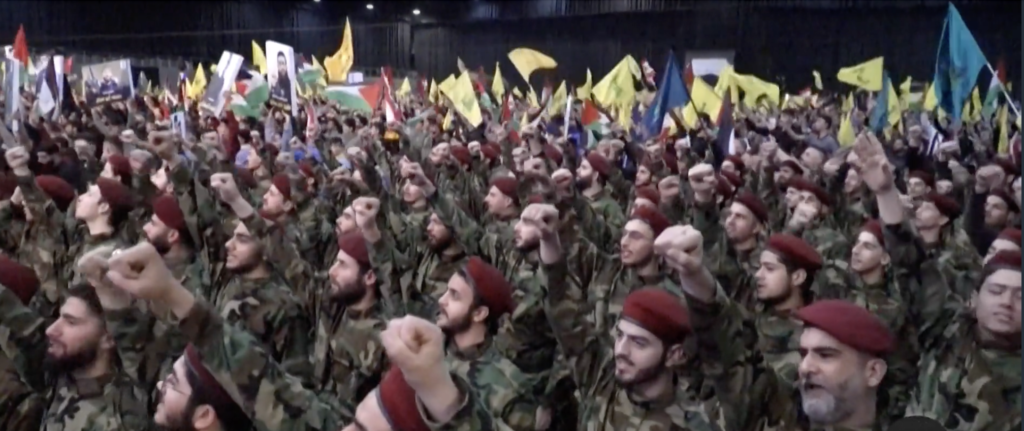The Far-Reaching Consequences of an All-Out Israel-Hezbollah War

By: Ghassan Rubeiz / Arab America Contributing Writer
Israel’s Prime Minister Benjamin Netanyahu is under mounting pressure to restore security to the border area with Lebanon. Close to 60,000 Israeli residents have evacuated the area to avoid the reach of Hezbollah’s missiles, rockets, and drones. On the Lebanese side of the border, a larger number of Lebanese have evacuated the area to avoid Israeli air raids.
During a recent visit to the border village of Kiryat Shmona, Netanyahu asserted that Israel was prepared for “very intense action in the north.” In response, similar threats of military action came from Hezbollah’s leader Hassan Nasrallah. Nasrallah promised to end the shelling when the Gaza war ends, whereas Netanyahu might consider a ceasefire in Gaza a suitable opportunity to target Hezbollah. The wars in Gaza and with Hezbollah seem likely to continue. As tension rises between Hezbollah and Israel, speculation about an all-out war is widespread. Border tension did not start with the war in Gaza, but it has been escalating since October 8.
A bit of history: Hezbollah emerged as a Lebanese resistance movement in response to the Israeli invasion of Lebanon in 1982. Hezbollah is also a product of Lebanon’s sectarian political system, where the Shiite community has never been adequately represented. In the year 2000, Hezbollah forced the Israelis to withdraw from South Lebanon, and as a result, gained respect and admiration locally. In some Western countries and Israel Hezbollah is labeled as a terror group. After Israel’s withdrawal, Hezbollah did not disband. It developed into a political party with a complex mandate. It serves as an important deterrent force against Israel. It also provides social services to empower its constituency, the Shiite community. In recent years it supported the Syrian state, in the aftermath of a failing national uprising against the Assad regime. The Lebanese are sharply divided over Hezbollah: its supporters regard it as a guardian of the Lebanese state; its critics consider it a threat to Lebanon’s national sovereignty. There is some truth in both narratives.
Just as the Gaza war has brought the neglected issue of Palestine to the attention of the international community, Israel’s border escalation with Lebanon has widely exposed the longstanding disputes between the two countries. These disputes are about territorial rights and could be resolved diplomatically.
Arab Center Washington DC’s Patricia Karam asserts that having failed to achieve its goals in Gaza, Israel will try to score a victory in Lebanon. The White House is cautioning Israel not to escalate. We will probably know by the end of this summer whether Israel is going to war with Lebanon. If Prime Minister Netanyahu returns from his US July 24 visit (to address a joint session of Congress) with a boosted ego, he may feel the reckless inclination to widen the war. If there is no diplomatic solution (for Gaza and Lebanon) by then, the pressure of the 60,000 displaced Israelis on the cabinet will be too strong to ignore. These displaced Israelis want to return to their homes before the new school year starts.
If a full-scale war erupts, Israel will probably achieve a tactical victory over Hezbollah, given its technological advantage and the support it will receive from the US. However, Israel might be surprised by Hezbollah’s resilience. Karam reports on Hezbollah’s confidence and points out that the resistance is willing to absorb devastation and rearm for a new round of fighting: “Hezbollah has become confident in its ability to ‘win’ the next conflict against Israel, even if this is likely to lead to widespread devastation, civilian casualties, and displacement in Lebanon. As an indication of what could be coming, the 2006 war inflicted some $3.5 billion in damage on Lebanon’s infrastructure. The country today cannot afford another ruinous war with its economy in free fall, a crumbling state, and a paralyzed political system.”
If Iran enters the war directly, the consequences of such a regional conflict may spin out of control. The pro-Iranian resistance forces in Iraq, Syria, and Yemen, which are already involved but not fully mobilized, will join the war as well. How the United States would react to direct Iranian participation in such a war is unknown. The extent to which the US gets involved in this regional war might also tempt Russia and China to increase their support for Iran. An Israeli war with Hezbollah could also radically change Lebanon’s landscape. It is hard to know how opponents of Hezbollah would behave, and what consequences they would face if they “misbehaved”. But a new regional war could expose Israel to its first stunning military defeat.
Israel is part of the Middle East and should be able to integrate into the region. However, to integrate regionally, Israel must rethink its approach to building ties across borders. The most natural prospective partners for a future, regionally integrated Israel are not the Saudis and the Emiratis; rather they are the neighboring Palestinians, Lebanese, Syrians, and Jordanians. By suppressing and rejecting Palestinian statehood, Israel is missing the opportunity to win potential friends in the region. Israelis are not likely to be willing to start another year of war and displacement. By the end of this summer, we could either witness positive breakthroughs in resolving conflicts or new wars with dire consequences.
Ghassan Rubeiz is the former Middle East Secretary of the World Council of Churches. Earlier he taught psychology and social work in his country of birth, Lebanon, and later in the United States, where he currently lives. For the past twenty years, he has contributed to political commentary and delivered occasional public talks on subjects related to peace, justice, and interfaith. You can reach him at rubeizg@gmail.com
The views and opinions expressed in this article are those of the author and do not necessarily reflect the position of Arab America. The reproduction of this article is permissible with proper credit to Arab America and the author.
Check out our Blog here!








